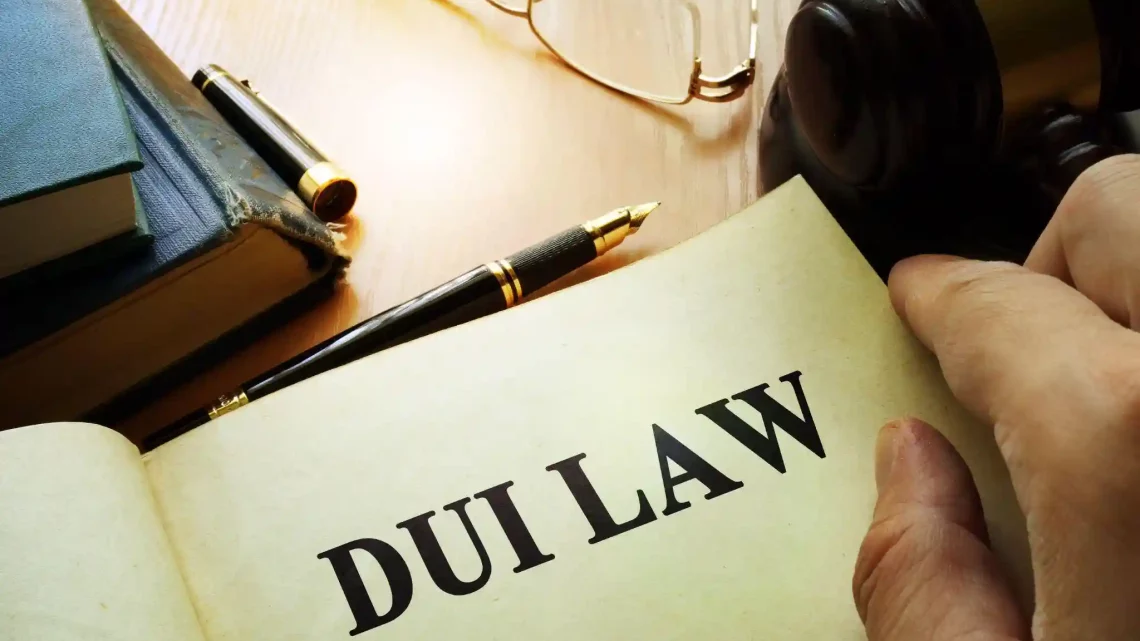
Understanding Florida DUI Laws: Conviction, Penalty, and Legal Overview
March 13, 2024Understanding Florida DUI Laws: Conviction, Penalty, and Legal Overview
Driving under the influence (DUI) is a serious offense in the state of Florida, and being convicted of a DUI can result in severe penalties. Understanding the Florida DUI laws and the potential consequences of a conviction is essential for anyone facing such charges or seeking to be informed about the legal landscape in the state.
What are the penalties for a Florida DUI conviction?
Florida’s DUI laws outline specific penalties for individuals convicted of driving under the influence, with variations based on the number of prior convictions.
First DUI conviction penalties
For a first-time DUI offense in Florida, penalties include fines ranging from $500 to $1,000. Offenders may face imprisonment for up to six months. Additionally, their driver’s license may be suspended for a minimum of 180 days.
Second DUI conviction penalties
For a second DUI conviction in Florida, the fines increase to between $1,000 and $2,000. The potential jail time also escalates, with offenders facing up to nine months of imprisonment. License suspension for a second offense can extend for at least five years.
Third DUI conviction penalties
Those convicted of a third DUI offense in Florida can expect fines ranging from $2,000 to $5,000. The jail time for a third conviction can extend to a maximum of five years, and offenders may face a mandatory license revocation for a minimum of ten years.
Understanding the Florida DUI laws and penalties
The laws regarding DUI in Florida are detailed in the Florida Statutes, specifically Chapter 316.193. These statutes define the offense of driving under the influence and outline the associated penalties.
What does the law say about DUI in Florida?
According to Florida DUI law, the offense of driving under the influence occurs when an individual is in actual physical control of a vehicle while under the influence of alcohol or drugs. The law sets the blood alcohol level at 0.08% as the threshold for being considered legally impaired.
Penalties for a Florida DUI
Penalties for a DUI conviction in Florida include fines, license suspension, and potential incarceration. The severity of the penalties escalates with each subsequent offense within a specified timeframe.
Consequences of driving under the influence in the state of Florida
Driving under the influence in Florida can have far-reaching consequences beyond the legal penalties. A DUI conviction can impact various aspects of an individual’s life, including employment opportunities, professional licenses, and personal relationships.
What happens after a DUI conviction in Florida?
After a DUI conviction in Florida, several actions may ensue, including license suspension, potential jail time, and mandatory participation in a DUI program.
License suspension after a DUI conviction
Following a DUI conviction, the Florida Department of Highway Safety and Motor Vehicles may suspend the offender’s driver’s license. The duration of the suspension varies based on the specific circumstances of the case and any prior convictions.
Jail time for a DUI conviction
Depending on the nature of the offense and the individual’s prior record, a DUI conviction can result in incarceration. The duration of jail time is determined by the court and is based on the specific circumstances of the case.
Attending DUI school as a result of a DUI conviction
As part of the consequences of a DUI conviction, individuals may be required to attend a DUI education program, commonly known as DUI school. This program aims to educate offenders about the risks and consequences of impaired driving.
Challenging a DUI charge in Florida
Individuals facing a DUI charge in Florida have the right to challenge the allegations and present a defense against the accusations.
Understanding DUI blood or breath tests in Florida
In DUI cases, blood or breath tests are commonly used to measure the alcohol concentration in an individual’s system. Understanding the procedures and potential inaccuracies of these tests is crucial when challenging a DUI charge.
Defending an underage DUI charge in Florida
Special considerations apply to individuals under the legal drinking age who are charged with DUI. Understanding the specific legal implications and potential defenses in these cases is essential.
Consequences of being convicted of DUI while being in actual physical control of a vehicle
Drivers in Florida can be convicted of DUI even if they are not actively driving, as long as they are in actual physical control of the vehicle. Understanding the implications of this aspect of the law is crucial when building a defense strategy.
Legal overview of DUI cases in Florida
Several legal factors come into play in DUI cases in Florida, including aggravated DUI, prior convictions, and criminal penalties.
Aggravated DUI in Florida
Aggravating factors such as excessively high blood alcohol levels or the presence of minors in the vehicle can elevate a DUI offense to the category of aggravated DUI, resulting in enhanced penalties.
Prior DUI conviction and its impact on a new DUI charge
Individuals with prior DUI convictions face increased penalties for subsequent offenses within a specified timeframe. Understanding the legal implications of prior convictions is crucial in navigating a new DUI charge.
Criminal penalties for DUI in Florida
In addition to administrative penalties such as license suspension, DUI convictions in Florida can lead to criminal penalties, including fines, probation, and imprisonment. Understanding the potential criminal consequences is vital for individuals charged with DUI.
What are the penalties for a first DUI conviction in Florida?
A first-time DUI conviction in Florida may result in a fine of $500 to $1,000. Additionally, the individual may face imprisonment for up to six months, probation for a period of one year, and the mandatory completion of 50 hours of community service.
What are the consequences of a DUI conviction in Florida?
Consequences of a DUI conviction in Florida may include license suspension, fines, possible jail time, mandatory completion of a DUI supervision program, and an increase in auto insurance premiums.
What are the DUI laws in Florida regarding blood alcohol concentration?
In Florida, it is illegal to operate a vehicle with a blood alcohol concentration (BAC) of 0.08% or higher. For individuals under the age of 21, the legal limit is 0.02%.
What are the penalties for a second DUI conviction within five years in Florida?
A second DUI conviction within five years in Florida may result in increased fines, imprisonment for up to nine months, mandatory completion of a substance abuse course, and a longer period of license suspension.
What are the underage DUI laws in Florida?
In Florida, individuals under the age of 21 can be charged with DUI if their BAC is above 0.02%. Penalties may include license suspension, fines, community service, and completion of a substance abuse course.
What should I do if I am arrested for DUI in Florida?
If you are arrested for DUI in Florida, it is important to seek legal representation from a qualified DUI attorney. Additionally, it is essential to comply with all legal proceedings and requirements set forth by the state.
What are the Florida laws regarding DUI manslaughter?
DUI manslaughter in Florida is a serious offense, which occurs when a person operates a vehicle under the influence and causes the death of another person. It is considered a felony and is punishable by significant fines and imprisonment.
Do Florida DUI laws have specific provisions for subsequent DUI convictions?
Yes, Florida DUI laws have specific provisions for subsequent DUI convictions, including increased penalties for second or subsequent offenses, longer license suspensions, and mandatory participation in a DUI supervision program.
Are there specific statutes in Florida pertaining to DUI convictions?
Yes, Florida has specific statutes outlining DUI offenses, penalties, and legal procedures. These statutes are important to understand for individuals facing DUI charges or legal proceedings.
What does it mean to be lawfully arrested for a DUI in Florida?
Being lawfully arrested for a DUI in Florida means that the arresting officer had probable cause to believe that the individual was driving under the influence, and the arrest adhered to the legal requirements and procedures set forth by Florida law.


